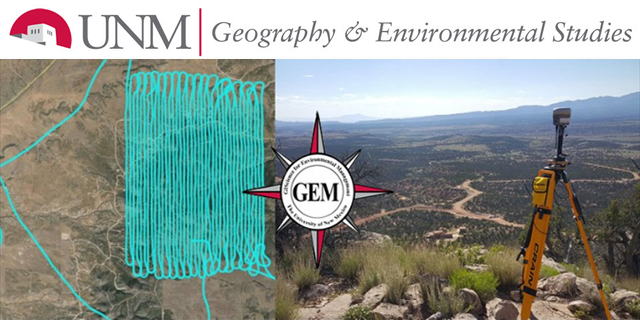
Geography ETDs
Publication Date
Spring 5-11-2024
Abstract
Urban areas have been found to affect the atmosphere locally through changes in emissions, thermal properties, the addition of moisture, and changes in airflow patterns. This study assessed the relationship between urban areas in central New Mexico and thunderstorm intensity and duration between 2001 and 2020. Weather radar data was used to derive thunderstorm events, as it is well-suited to fast-changing thunderstorm conditions. Regression analyses were used to determine the relationship between developed land cover and thunderstorm intensity and duration, while controlling for factors such as elevation, aspect, and near-surface temperatures. It was found that developed land cover was statistically significant and positively correlated with thunderstorm intensity and duration. Additionally, although developed land cover and the population of central New Mexico increased, it was found that maximum intensity, mean intensity, and duration did not increase between 2001 and 2020. Maximum intensity in the 95th percentile did increase during that time.
Degree Name
Geography
Department Name
Geography
Level of Degree
Masters
First Committee Member (Chair)
Christopher Lippitt
Second Committee Member
Xi Gong
Third Committee Member
David Gutzler
Document Type
Thesis
Language
English
Keywords
thunderstorms, weather radar, urban climates, New Mexico
Recommended Citation
Vivier, Alexandra Jane. "A Weather Radar Analysis of the Effects of the Albuquerque Urban Area on Thunderstorms from 2001 to 2020." (2024). https://digitalrepository.unm.edu/geog_etds/72
